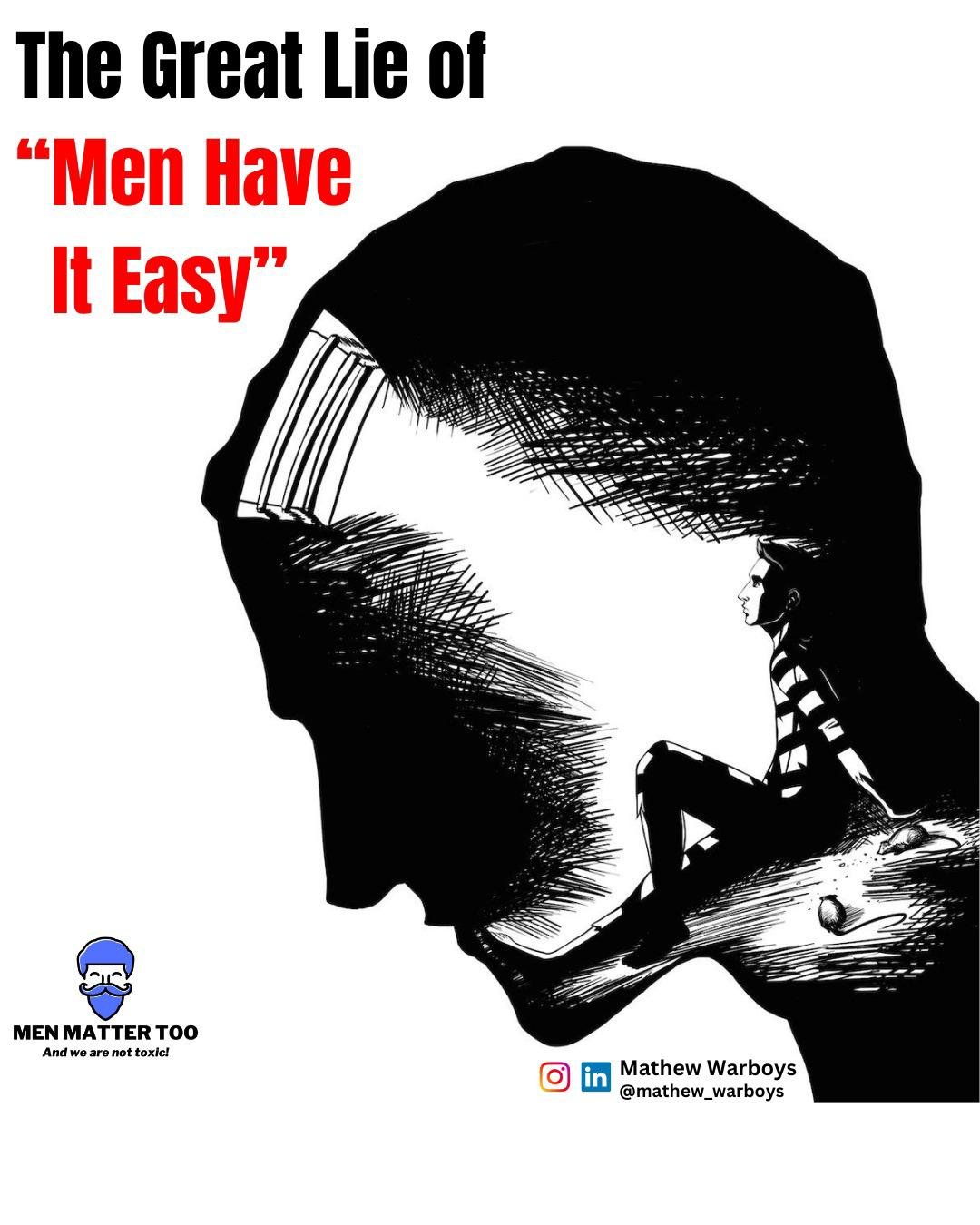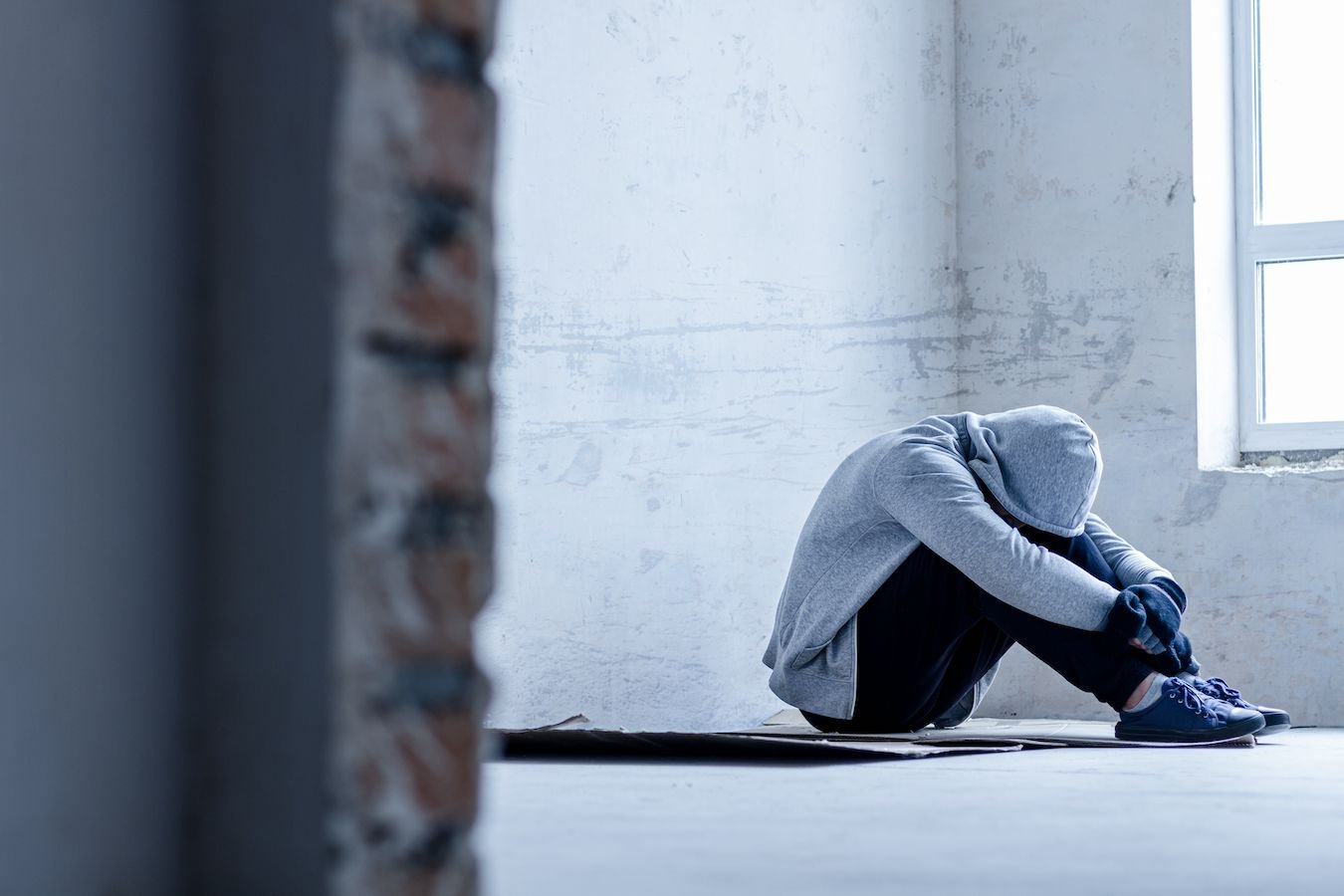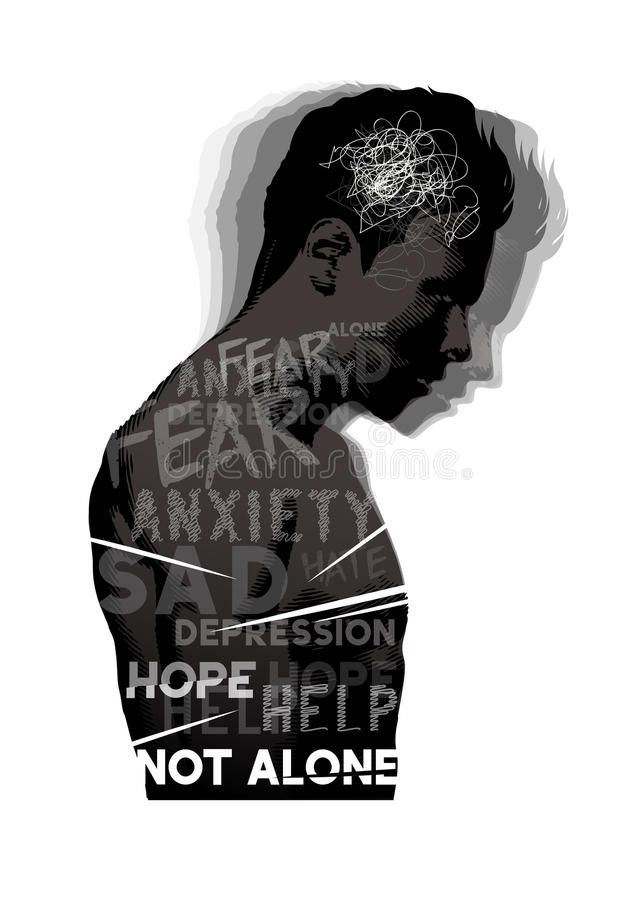The Great Lie of “Men Have It Easy”
Courtesy: Pinterest
5 Problems That Men Face In Life
The idea that men “have it easy” in life—especially compared with women—is a very fallacious one. It is also very dangerous and damaging to male mental health and suicide prevention!
Too often, extreme voices wish to tear men and women apart—rather than bring together and unite; in such a way that we want to look out for each other. Feminism, in many cases, has unfortunately become a proxy for anti-male sentiment and the demonization of masculinity.
The notion that “men have it easier” in life is often put about by those who are looking to sow division—and win out in what they regard as a power play between the two genders. If you can convince women that they have been “oppressed” by men, then it serves a purpose to those who wish to induce feelings of resentment and anger in others, in order to mobilize forces to take revenge. This is NEVER a healthy foundational dynamic!
It is about time to realize, therefore, that both men and women can suffer. There is no utility in a comparison on sufferance—not least because it is impossible to objectively measure. Where there are humans, men or women, there is always a capacity for pain and a need for understanding.
In that spirit, let’s examine 5 of the key problems men can face in life:
1. The Problem of Generalization
Courtesy: Pinterest
Unsophisticated minds extrapolate where it is not appropriate. For example, if you are attacked by a black person, as a white person, it would be wholly destructive and malevolent to form a conclusion about “all black people” on that basis. However, “all men are X” statements seem perfectly permissible in many circumstances. The fact is, of course, there will always be some evil men out there—as indeed there are such women too. But forming an opinion about the majority, on the basis of horrendous acts from the minority, is a generalization that will only serve to further perpetuate division and undue hate.
Men have, in many instances, become fair game for blanket and broad-brush negative sentiments. Likewise, the idea that all men benefit from “patriarchy” is nonsense. You have not met “every man”. Even if you could, you still wouldn’t necessarily get the full picture of their internal dynamic, what they are feeling, and the hidden pain that they might be carrying. And, of course, even men who are seemingly succeeding on certain criteria—such as financial—might nevertheless feel lonely, depressed, misunderstood, or whatever else. Don’t be the unsophisticated generalist about men; seek to understand the individual and their unique circumstances. You would wish for the same!
2. The Hidden Pandemic
of Male Suicide
Courtesy: Pinterest
Of course, we have just come through what many people believe to have been a physical virus pandemic in relation to COVID-19. It definitely wasn’t “hidden”—the horrors were reported on a minute-by-minute basis on 24-hour news cycles around the world. We know that physical health concerns, by their nature, often take conceptual precedent over mental health—hence the continuing fight for parity of esteem and treatment. But, when it comes to male mental health in particular—and related suicide prevention—it is clear just how “hidden” this very fatal pandemic is.
In the U.K. alone, for example, even before COVID, 1 man was taking his own life every 2 hours—and we know the very devastating impact that lockdown tyranny had on loneliness and isolation (and therefore suicide rates). We have a situation, in modern times, where suicide is by far the biggest killer for men under the age of approx. 45. Whilst countries like the U.K. and U.S. have become richer, the suicide rate has actually worsened, whereas in poorer countries and the “third world”, the suicide rate is often much lower. If this tells us anything, it is certainly that wealth is no answer to preventing male suicide—if anything, it increases the likelihood (hence problem #1 above when it comes to generalization).
3. Men Struggle To Open Up
Courtesy: Pinterest
There is the old adage: a problem shared is a problem halved. Of course, this is a cliché, but we understand what is being referred to here—namely, the power of open and supportive communication. There is nothing worse when you are struggling than feeling like you are alone with your problems (with no one to listen to and provide a sense of compassion). Whilst this is what friends and family often provide, many of us take that for granted, not appreciating that others might not have the same support systems around them. And, even when they do, as a man, it can feel like a weakness to admit problems—for fear of being negatively judged, labeled, or told to “man up”.
Talking therapies can be effective for many men, but there is a huge difference in that women are much more likely to seek them out. For the misinformed media, this is evidence of “women suffering the most”—since they are disproportionately represented in receiving counseling services. But this misses the point entirely—since men feel deterred from accessing such support, for the reasons already mentioned. There are certainly times when, as a man, showing weakness and vulnerability might not serve us well. If you are defending your family against an attacker, for example, the protector and provider instinct should win out (and the men, as Head of the Tribe, always had to be mindful of projecting strength and undiluted fortitude). In most modern contexts, however, there should be enough room for men to talk about their emotions—if they should wish to do so—and asking for help doesn’t always have to be the female preserve.
4. Military Conflict and PTSD
Courtesy: Pinterest
Men are disproportionately the ones who fight and die in wars. In that sense, some of the most evil forces in our world—like Nazism and Communism—have been resisted through the gallant efforts of our male ancestors. Nobody thought masculinity was “toxic” when it was the first and only line of defense between tyranny and freedom. It is an altogether very modern idea that somehow men should be ashamed of their masculinity—even though the world would quite literally crumble tomorrow without it.
The standard retort is “Well, men start the wars in the first place”. If anyone is still stuck in that tendency for generalization, problem #1 above would be a good point of reference. Even if one accepts that “men create the wars”, it would be no comfort to a man on the receiving end that a member of their own gender started it. Again, we are all individuals, not simply a mouthpiece for our entire gender. In any case, there is no evidence whatsoever that men are more likely to start wars—and history shows that male and female leaders are equally likely to commit their country and troops to military conflict. But it almost always is nearly 100% men on the battlefield—and coming back to their wives and children with PTSD.
5. Divorce Laws & Child Custody
Courtesy: Pinterest
Finally, for all of those who allege “men have it easier”, you clearly haven’t spoken to a man whose wife has walked out on them, taking the kids and denying access rights (even after the woman is responsible for the marriage breakdown—for example, because of adultery). Of course, the main aim should be to avoid divorce and the breaking of marriage vows altogether—since a stable man-woman partnership is vital for the rearing of children.
But, when there is a divorce, we have moved towards “no-fault” assumptions—meaning that, even if the man is the innocent party, he might lose his house and children in the process (as well as the wife he thought he had). Many fathers, therefore, through no fault of their own, have very little or no contact with their children—without sufficient legal protection behind them. No doubt this is the “male privilege” in action that we hear so much about!
— — — — —
Let us, therefore, put to bed, once and for all, the notion that “men have it easier than women”. Instead, let us acknowledge the individual humanity of each person—man or woman—and meet them where they are in their hour of need and pain.
Malevolent forces are still trying to tear men and women apart. We need to resist that! Why? Because we have, do, and will always achieve so much together in partnership. That starts with understanding—understanding each other’s pain points and suffering. These outlined 5 are not an exhaustive list, by any means. But we have to start somewhere.
— — — — —
For inquiries about Men Matter Too—or to receive support from us:
— — — — —








